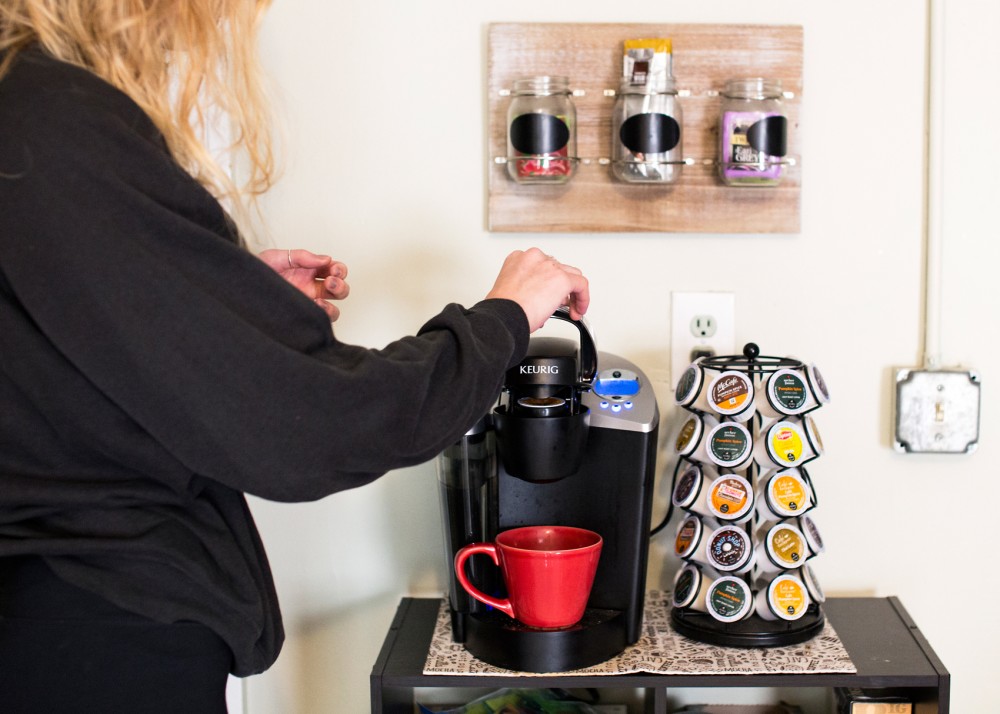While K-Cups are convenient to use, the single-serving coffee pods aren’t as easy on the environment.
Researchers and environmental activists are alarmed about the impacts of packaging for K-Cups as the small pods used for Keurig coffee makers cannot be recycled in most places, which leave many of the plastic pods in landfills.
“You can’t get around this packaging issue,” said Tim Smith, bioproducts and biosystems engineering professor and Institute on the Environment program director. “It’s more wasteful than it needs to be.”
Recently, city leaders in Hamburg, Germany, banned K-Cups because of the amount of waste they generate.
To gauge the environmental impact of coffee, Smith said, researchers conduct life-cycle assessments to determine which parts of production contribute to pollution.
People using too much coffee, heating too much water, heating coffee for long periods of time and throwing away excess coffee all factor into environmental assessments, Smith said.
Single-serving coffee makers limit the amount of these behaviors, Smith said. Furthermore, they don’t heat coffee after it brews which reduces the amount of energy the machine uses, he said.
Though the machines are known for their short brewing time, it would be more cost-efficient and less wasteful to buy instant coffee, retail merchandising sophomore Cece Sjoquist said.
Still, Sjoquist uses K-Cups in her Keurig two to three times a week.
“I don’t know if I’ve ever thought about where [the K-cup] goes,” she said.
Biology sophomore Jadin Meurer said she uses her Keurig at least once a day. She said she prefers it to standard coffee makers because of the convenience.
After hearing about the environmental impacts of the plastic cups, Meurer said she might be more conscious when using them in the future.
Some consumers, however, get around using traditional K-Cups by buying refillable pods.
Though K-Cups aren’t recyclable, Keurig currently sells three types of pods which can be recycled, Keurig spokesperson Katie Gilroy said.
Post-Secondary Enrollment Options student Anna Saboe said her family understood the environmental effects of K-Cups when buying their Keurig, she said.
By making the decision to primarily purchase reusable pods, she said they generate less waste than they would otherwise.
The company has a commitment to make 100 percent of the K-Cup pods recyclable by 2020, Gilroy said.
“There’s something for why they won’t change their design, and it must be for reasonably good reason for their system or else it wouldn’t take them … five years to fix the problem,” Smith said.
Keurig is working with recycling and plastic industry experts to ensure that future reusable K-Cup designs are more sustainable, Gilroy said.
Despite these proposed changes to K-Cups, their environmental impact is negligible compared to the amount of water and energy traditional coffee makers use, Smith said.
“In the overall scheme of things, for a cup of coffee … the packaging part probably isn’t that bad,” Smith said.








